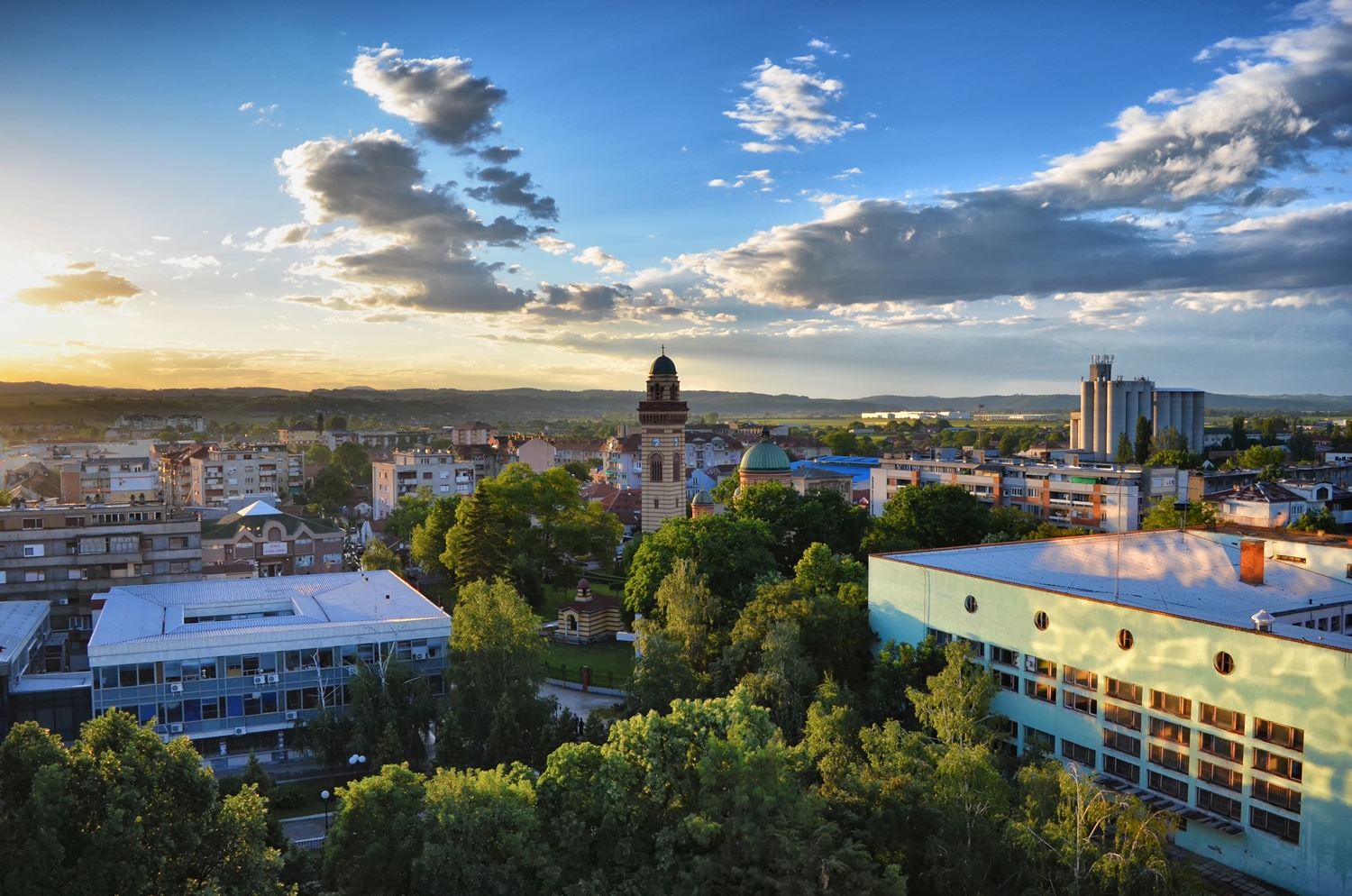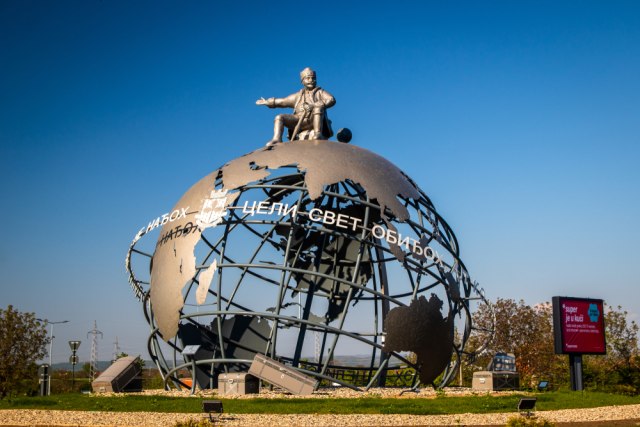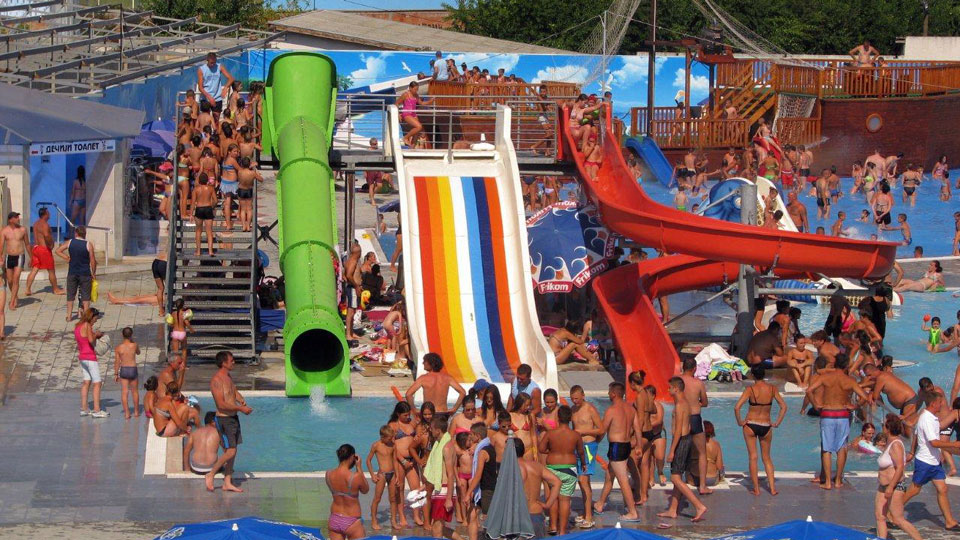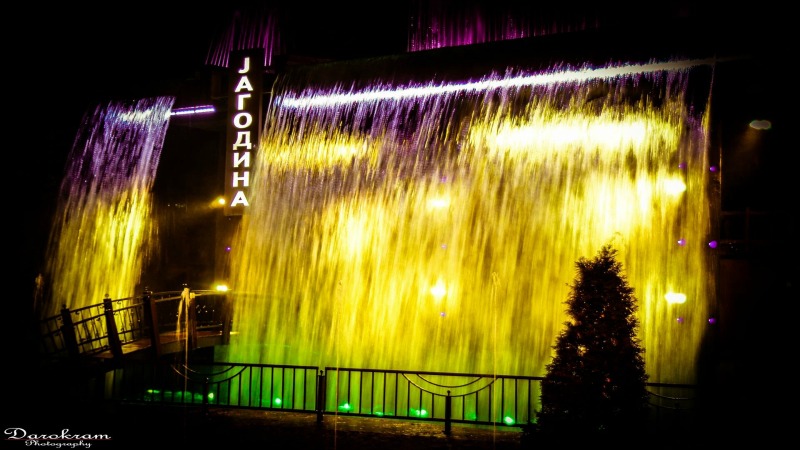
Jagodina municipality and Pomoravlje district
Jagodina is a major city in Serbia and a lively administrative center of the Pomoravlje district (Central Serbia). Belgrade is not far from here and yet Jagodina seems like another world.
With the new highway, much improved compared to a few years ago, you can get there quickly starting from the Serbian capital. And continuing south, you can reach the Macedonian or Bulgarian border in a very short time.

The municipality of Jagodina has great merit. In other words, having supported tourism in recent years. This aspect has allowed it to attract an increasing number of visitors who come to Jagodina from all over Serbia.
The current name of Jagodina dates back to 1399, when the city took its name from the word "Jagoda" which means "strawberry" in Serbian. From 1946 to 1992, however, the city was renamed Svetozarevo.
Today, for both Serbs and foreigners, this city is called only and exclusively Jagodina. That is, a charming town, located on the banks of the Belica river, in a region called Šumadija.
Together with Paracin and Cuprija, this predominantly agricultural center remains the most important and lively urban center in the whole of Pomoravlje. Its municipality covers an area of ??470 square kilometers and includes 54 villages that climb up the surrounding hills from the plain.
Click here to take a walking tour of Jagodina!
Jagodina currently has a population of about 45,000 inhabitants, which, counting the neighboring municipalities, reaches 77,000 people. As many as 96% of the local population is, rigorously, of Serbian nationality.
But there were many, even those who left this city in Central Serbia to seek better fortune in Belgrade but above all abroad. In particular in Switzerland, France, Germany and Italy.

For many of them, Jagodina, with its city tram, its traditions, and the family members who stayed here are like a magnet that periodically attracts them. Almost everyone loves to come back for Holy Christmas, the Easter festivities, for some weddings (which here can last even a few days) or in the summer when Jagodina cars with foreign license plates do not go unnoticed.
Click here to discover Jagodina on a market day!

The climate
The climate of Jagodina is influenced by the relief and its geographical position, which create a temperate continental climate, with cold winters and particularly hot summers. The average annual temperature in Jagodina reaches 11 degrees. Rainfall, on the other hand, reaches a higher average in the month of May to reach the minimum in the month of February. Jagodina is certainly not a windy city. The most common wind in this area comes from the northwest. But it is not the only wind blowing over the Serbian city. The second, in terms of intensity, is the "Kosava".

City attractions
Jagodina is one of the first Serbian cities that believed in the development of its infrastructure, culture and tourism. Proof of this is that the city experiences a constant mainly local tourist flow. When to visit this Serbian region? Winters are traditionally particularly cold. There is no shortage of snow especially from December to the end of January. Summer and the "middle seasons" in general are perhaps the best choice for a short break during a trip to the Balkans along the Belgrade-Nis route.

The possibilities for recreation in Jagodina are not lacking when compared to other Serbian cities. Among these we would like to mention:
Zoo: Jagodina, Palic and Belgrade are the only Serbian cities to host a zoo. The one in Jagodina is located within the city sports complex. More than one hundred and fifty species of animals are hosted here (among them: Bengal tiger, giraffes, lions, seals, bears).
Aqua Park: it is a good level tourist attraction that extends over three and a half hectares and contains seven swimming pools with water attractions and water slides for a total length of 600 metres. Six structures are for the exclusive use of adults. The remaining three are intended for children. Inside the park there is also a restaurant and a small kiosk for the sale of ice creams and fruit juices.
Skate Park: inside the Jagodina sports center there is also a Skate Park, which was inaugurated thirteen years ago. The polygon housed in the park occupies an area of ??1000 square meters, and together with two swimming pools, with more than five ramps (for skaters, skaters or motorcyclists) is an authentic attraction of this charming town in Central Serbia.

Popular events and local traditions
Jagodina hosts a lively calendar of events throughout the year which mainly attracts Serbian tourists from the region and neighboring ones.

Among the most important, and therefore attended, events we include:
Comedy Days: is one of the most significant events. It is organized every year from 20th to 27th of March, when all the theaters of Serbia come to Jagodina to compete for an award designed to reward the best national plays. All are united by one goal. Participate, have fun, dreaming of winning the Javanka Micic Award for the funniest work and the Curan for the best role and direction.
Musical autumn - for 25 years of its existence, this festival has collected the most famous names of soloists of serious music and instrumentalists who create the most beautiful sounds. It is organized annually by the Jagodina Cultural Center at the end of November and lasts for 20 days.
Meetings in the villages: a festival that has been preserving the tradition of village life, folk costumes, ethnic motifs for 3 decades. During the festival, village creators from different categories gather, who present their products and encourage the conservation of the environment and rural tradition. It is held in late February and early March each year.
Summer events: From May 1st, Djurdjevo Brdo city park turns into the epicenter of good entertainment, musical concerts and good quality programs for children and adults.

Museums and Churches
A day visit of Jagodina must be completed with a visit to the churches (strictly Orthodox) and museums. In Jagodina, the foreigner can visit three Orthodox places of worship:

• The temple of the Holy Archangel Michael (or the "old church"): it was built in 1824 by prince Miloš Obrenovic;
• The Church of the Holy Apostles Peter and Paul (also known as the "New Church"): it was consecrated in 1899 and is one of the most beautiful Byzantine-style monuments;
• The Church of the Holy Great Martyr George: donated to the local community by the merchant family of Vaso Rakic ??who built it in 1891. The church was razed to the ground in 1985, and a significantly renovated temple was created in its place.

Not far from Jagodina, in the hamlet of Donje Stiplje, immersed in a densely rural area where peace and tranquility prevails, there is a small Orthodox church of rare beauty. His building is often closed. After all, Stiplje is only a small fraction of Jagodina with a few hundred mainly peasant inhabitants. Reaching it is not especially for those who do not have a car.
But for those who have time and love "lost places" it is worth a visit even just to take a look at the church from the outside, buy something good in a farmer's house or maybe see an enchanted landscape from the window of your car which seems to have stood still, in terms of progress, at least forty years ago.

Jagodina, within its municipal perimeter, also hosts the following museums and/or cultural institutions:
Wax Museum: a space that has gradually become the most important symbol of the city. It is one of the city buildings which marked the beginning of the accelerated tourist development of Jagodina. It is located within the Potok Djurdjevo Brdo sports and recreation complex and has been hosting the most famous personalities of our history, culture and sport for thirteen years.
Museum of Naive Art: since 1960, Jagodina has been enriched with a museum institution that collects, studies and exhibits works of naive art. To date, the Museum has collected over 2,000 works, making it the largest institution of its kind in the Balkans.
Museum of the Homeland and Archaeological Sites: a museum institution that exhibits over 200,000 exhibits through 5 departments: archaeological, ethnological, historical, artistic and naturalistic.
The "Potok" park: it is part of the Jagodina tourist complex and is one of the most appreciated attractions by visitors and locals who come here for a simple walk or even just to sip a good coffee or a beer at the Park bar .
Click here and you will see the beautiful Potok Park! A fountain was built inside the park, 122 meters long and decorated with colored lights. But not only. Images of turkeys and the city coat of arms of Jagodina are also housed in the park. In addition to all this, the Potok park also boasts a choreographed seven meters high and twelve meters wide waterfall which, together with the fountain, embellishes the natural environment of the picnic area.

Djurdjevo Brdo City Park: is undoubtedly the most visited picnic area in Jagodina. It is a real oasis of greenery and healthy air, where there are vast spaces for sitting and resting, as well as play areas for children's entertainment. From May to August, a summer stage is also set up in this park, complete with an amphitheater, where various theatrical, musical and entertainment programs are organised.

Jagodina and the tradition of viticulture
Wine production has a long tradition in Central Serbia. Over the years, we are witnessing an ever-increasing number of wine producers, who have become, little by little, excellent producers, on a national level, who are gradually making themselves known and appreciated also all over the world. 'Abroad.
The main wine route, which connects the best wineries in the Jagodina area, passes through villages such as Vinorakla, Medjurec and Lozovik.

Jagodina
Address:
Phone: +381 035 25 29 83
Site:
https://secretsedition.com/2021/06/28/jagodina-city-of-culture-and-tourism/Location inserted by
Marco Cadelli